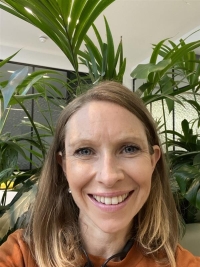Introduction
Innovation and Improvement Hub pilot project reflective question 2: What are the current service challenges and how are members trying to improve these?
Piloting an online improvement journey submission tool, our Innovation and Improvement Hub collected data from members around problems facing services, projects that are implementing a change to improve service outcomes, any barriers and enablers to their projects and the impact of the change on service outcomes. In this report, we’ve summarised the key themes arising from the thematic analysis of the qualitative questions responses submitted during the pilot phase (28/11/2022 to 31/03/2023). Our analysis includes 26 completed and submitted improvement journeys.
Methodology
The Innovation and Improvement Hub online improvement journey tool is a semi-structured information-gathering questionnaire where the questions are based on change methodology. We piloted this as a new method of collecting service data from members. Five reflective questions were developed in addition to three quantitative data capture ones. The reflective questions can be seen in the table below. Thematic analysis of the responses to these questions was conducted by Julia Roscoe – Research & Innovation Officer using the Braun & Clarke (2022) approach. The resulting themes were also peer-reviewed by Suzy England –Service Innovation Manager.
Results
The results of our analysis identified seven key themes which can be seen in the table on page 2. Some overlap was seen between the themes, and each is described more fully in this results section.
Analysis of question 2, where members gave a short description of their improvement idea/project, found that most improvement journeys submitted were around making improvements to care and improving service delivery for an identified group of people. These focused on improving access to care, efficiency of services and improving patient flow through services by looking to reduce waiting times, improving the effectiveness of treatment, and improving the quality of care or service received. Some improvement ideas were strategically driven, for example by an OT’s organisation and/or manager, and others were new ideas for projects or ideas for change. Several submitted improvement journeys were around supporting occupational therapy students and newly qualified OTs with additional learning and aspects of their role. There was much overlap in responses to question 2 describing your improvement idea/project and question 6 regarding the benefits to people who access services. The small number of responses to question 10, added further links to project reports, information, or posters and two requests for advice.
1. Improving the quality and cost effectiveness of care with equitable and timely access to services.
Building on the descriptive information from question 2, most improvement journeys submitted were focused on improving care and quality of life for people who access services and were around promoting earlier intervention, reducing risks, providing timely access to services and/or treatment, improving cost effectiveness in the service offered and reducing length of hospital stay. For improvement journeys that focused on improving health and wellbeing for people who access services, this was by providing access to information about available services and treatment, improvements in promoting and supporting self-management for people who accessed services and improving communication with families and carers to build understanding of their relative's care and available services.
2. The value of good communication skills and effective communication.
The value of good communication skills and effective communication was a strong theme found in the learning shared in the improvement journey submissions. While communication was not specified as verbal or non-verbal this theme included learning shared on the importance of effective communication with key stakeholders and team members involved in the projects, working together as a team to problem solve, and the importance of tailoring information messages about the project to different audiences to encourage ‘buy in’. Also communicating with patients, carers, and service users about the change. Concurrent with this was the sub theme that communicating change to others can be hard and identifying and managing key stakeholders through good communication throughout a project is key to ‘bringing everybody on board’ and ‘maintaining momentum.’
3. The importance of collaborative and multidisciplinary working.
From the improvement of journey analysis, collaborative working across and within teams emerged as a strong theme. Most of the improvement journeys where projects were already being implemented or evaluated identified that ‘change is hard by yourself’ and ‘involving people’ in your idea and change is important. Sub themes included the value of ‘networking to learn from others and share ideas, and the importance of staff working together to feel competent and empowered to deliver change. Collaborative and multi-disciplinary working was identified in many improvement journeys as key to ‘getting support and the right people on board,’ building, and motivating a team with a ‘shared vision,’ promoting project ownership, sharing feedback on the project, and identifying key people and leaders to ‘help drive the project forwards.’
4. The benefits of a structured approach to project and problem solving.
This theme emerged from many of the improvement journeys and overlaps with the communication and collaborative working themes. The benefits of a structured approach were identified by OTs as helping to identify and explore the nature of a problem first, ‘enabled gathering of appropriate information’ and piloting the approach to problem solve and develop ideas further. One OT highlighted how a structured approach helped to ‘maintain momentum and keep people on board for the project duration.’
5. Improvement projects require time and new ways of working.
Reflecting on what they had learnt and advice they’d give to other OTs, the time taken to plan, implement and evaluate a project in practice was a key theme, taking much longer than originally anticipated in each case. This theme was found to overlap with theme 1 & 4. The advice given was to ‘take time properly to plan,’ and that often, competing demands and workload pressures had an impact on a project duration.
A few improvement journeys were submitted from OTs who were new in a role which had been established to deliver changes in services or develop new services. Some identified that time is a important factor to build into planning when trying to understand the scale of a problem or change required. Advice given when looking at new ways of working in a project included, ‘don’t overburden yourself or your team,’ ‘use technology to help’ ‘be flexible in your approach,’ ‘define roles within the team’ and ‘accept its going to be challenging!.’
6. Implementing change in organisations can be complex
Building on the themes already outlined, the improvement journey analysis highlighted that implementing change in organisations can be complex. The sub themes identified the potential of organisational cultures to have an impact on facilitating or creating barriers to change, with differing priorities across teams, organisational hierarchy and data systems which are not linked being impactful on project progression, delivery and evaluation. Advice given was around identifying and positively influencing key stakeholders, communicating effectively at different levels within an organisation and working collaboratively to overcome any barriers, problem solve and maintain project momentum. A structured approach and allowing more time were highlighted as important advice to help navigate complex change.
7. The importance of meaningful data collection and evaluation of projects
The thematic analysis highlighted the importance of meaningful data collection and evaluation of projects as key in ‘being able to prove the projects value and outcomes’. A few OTs suggested that management tools were helpful to support planning of a project and demonstrate a staged process of implementation and evaluation.
Conclusion
The thematic analysis of the qualitative data from the 26 improvement journeys, found that the current service challenges these members were facing focused around improving the quality and cost effectiveness of care and equitable and timely access to services. The data submitted helps us to understand some of the challenges members have experienced during their improvement journeys and highlights the consistent themes from their learning and advice given for other OTs. For example, the analysis found that there can be complex challenges within organisations when implementing change, engaging stakeholders and ‘sharing your vision’ and need for change.
The themes from the advice you would give to other OTs overlapped with the responses to questions about what was found to be most challenging and what helped to move your project forward. These identified the value of good and effective communication, working collaboratively and building multidisciplinary teams to plan and deliver change, (including identifying key stakeholders to support change), and the benefits of a structured approach to project planning as core themes. From the improvement journeys where OTs were already implementing and/or evaluating improvements to care and/or services, the analysis found that improvement projects require time and new ways of working, and the importance of meaningful data collection and ongoing evaluation of projects supported by data were key themes.
References
Braun V & Clarke V (2022) Thematic Analysis – a practical guide. Sage press, London.



